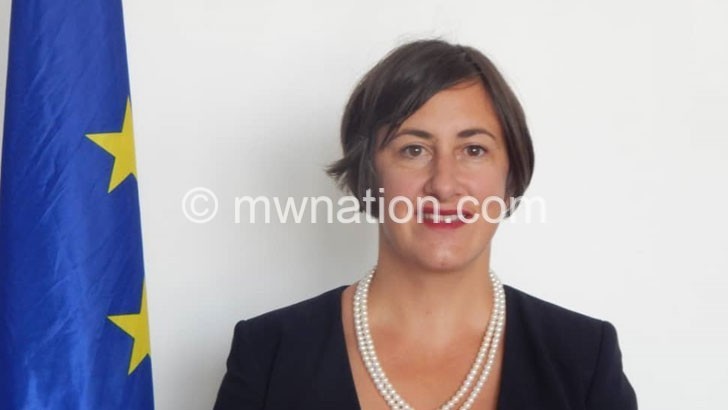Germany, EU concerned on delayed IPPs contract approval
The German government and the European Union (EU) have expressed concern over the delays the government in approving contracts for independent power producers (IPPs) intending to invest in Malawi.
The delays are said to be frustrating German and EU IPPs need to begin their investments in the country at a time Malawi is in great need to fix its current energy woes.
Speaking on Friday on the sidelines of the Malawi-Mozambique Power Interconnection grant signing agreement in Lilongwe, German Ambassador Juergen Borsch said Malawi needs to swiftly sort out the delays in approving the contracts to allow more IPPs to invest in the energy sector.

He warned that Malawi risks losing out more Foreign Direct Investment (FDI) with the prolonged energy woes saying investors do not listen to sweet talks by the government but they check with fellow investors whether the investment climate is conducive before making their decisions to invest in a country.
Said Borsch: “We have a number of investors that are ready and waiting on the edge to invest in Malawi in clean energy. You know Germany has gone through a wave of painful experience of trying to find where to invest, for instance, in wind and solar energy.
“Now if the ink is dry on contracts that are already on the table then it becomes challenging. Within one year we can go onto the national grid and we will have power that is clean and future oriented.”
On her part, EU Ambassador Sandra Paesen shared similar concerns and explained that the EU has even offered guarantees to its IPPs to minimise risks of investment in Malawi, but the country needs to ensure conducive investment climate.
Said Paesen: “We have to think about renewable and sustainable energy. Malawi has abundant opportunities, there is great sunshine, rivers, dams like the Bwanje Dam that need investors to come in.
“We have European investors who can invest in renewable energy, we have to create a conducive investment environment, a safe environment is very important.”
She said the country with 85 percent of Malawians having no access to electricity, exerts pressure on the environment as the huge population is relying on firewood for household use hence increased access to energy would lessen the burden.
Ministry of Natural Resources Energy and Mining principal secretary Patrick Matanda admitted of the delays but assured the development partners that bottlenecks that prevailed to speed up the contract approval process are now resolved.
Recently, Renewable Energy Industries Association of Malawi (REIAMA) executive director Ron Kabvina argued that Malawi has overwhelming potential for renewable energy which can fully cater for the country’s energy needs if adequately utilised. The government Power Demand Forecast of the Integrated Resource Plan (IRP) 2017, as revised in 2018, indicates that the demand for electricity is projected increase to in excess of 800 megawatts (MW), 1 200MW and 2 500MW by 2020, 2025 and 2035 respectively.





